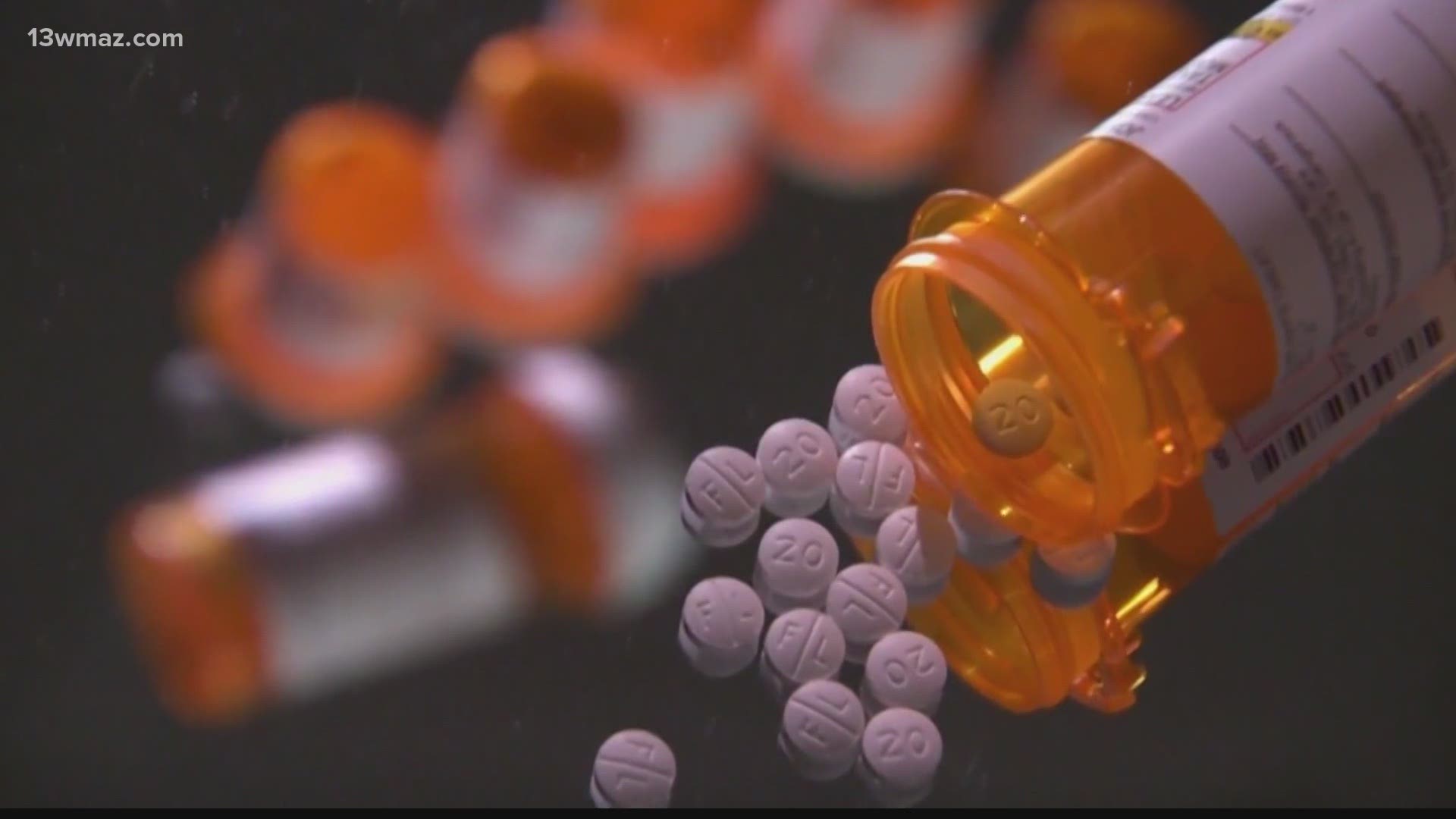WARNER ROBINS, Ga. — Warner Robins has seen a spike in drug overdoses in the last month.
Police Chief John Wagner says they responded to 18 overdose calls in April. That is more than three times higher than their average of five.
That trend lines up with CDC data that says more than 87,000 drug overdose deaths were reported in the 12-month period ending last September.
They say that is the highest number of overdose deaths ever recorded in a year.
Wagner says most of those 18 overdose calls involved opioids.
"Whether it's fentanyl, codeine, something along those lines," he says. "We do realize we're seeing some people over and over again."
The spike in overdoses is not just a Warner Robins problem.
"We have definitely noticed an increase in the frequency as well as severity of both mental health as well as substance use patients here," says Dr. Jacob Hanna, a psychiatry resident at Coliseum Medical Centers.
Both he and Kyle James, a National Certified Addiction Counselor, say the pandemic had a lot to do with that jump.
"There's not as many consequences that usually people would get when they're drinking and using, specifically because they're not going to work, they're not around their family, they're isolated. It's a perfect recipe to enhance the addiction they already have," James says.
Hanna says irritability, disappearing for long periods of time or going through a prescription faster than normal can all be signs of drug use, but James says with the pandemic, some signs have changed.
"Your typical signs and symptoms are like changes in behavior, sporadic behavior, but I think with the pandemic, you're not going to see any behavior because everybody has been isolated," she says. "You're really going to have to look outside that scope and see, 'Are they answering their phone? Am I hearing that they're talking to their brother or sister?'"
Wagner says they want to do what they can do help people get better.
"Our job is not always about locking up people. It's about helping them. If we can help you break the cycle of addiction or give a chance for a family member to make that phone call and get some type of intervention, that's what we want to do."
In those 18 overdose calls in April, he says most were 18 to 30-year-old men.
If you're with someone who is overdosing, Wagner says don't be afraid to call 911.
"You don't want someone's death on your hands."
He says Georgia's Good Samaritan Law will protect you in most cases if you're there or also using drugs.
"Yes, they can call 911 and the Good Samaritan Law could cover them because you've definitely gotten help for the other person."
According to the CDC's preliminary data, Georgia's number of drug overdose deaths have increased almost 26 percent from September of 2019 to September of 2020.
If you are struggling with addiction, click here for resources around Central Georgia.

